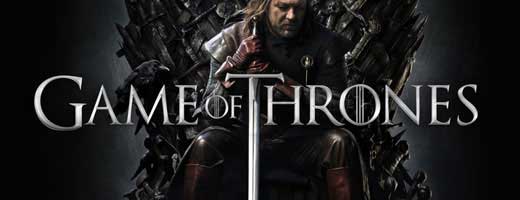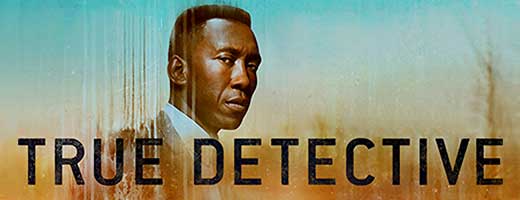Free Will, Black Sheep, Etc

Have a Theory? Share It Now!
Some thoughts after the review episode this week.
1. Ashley’s comment on knowing the future helps to change the future: This is only true based on the assumption that human have free will, which is not necessarily true (to an extent) in the real world. How about in the Westworld world? What if human are really just running in loops? Ted Chiang’s Story of Your Life or the movie Arrival depicts the scenario where knowing the future has nothing to do with changing the future. Ashley’s argument hinges on the underlying assumption, which may or may not be true (at least in the context of the show).
2. Gene’s black sheep thought experiment is quite interesting. Depending on circumstances and cultures, there could be a continuum of answers to how to balance the welfare of the three favorites and two black sheep. Take, for example, different countries’ plans to fight the pandemics (not their implementation, just their plans and underlying values). First, who are the black sheep? If you are in a country that’s highly dependent on having an open economy, you cannot afford a lock-down. Your biggest threat might be starvation. You may be forced to forgo those who are more vulnerable to the virus. If you are a country with an extreme aging problem, you cannot afford to let your people be exposed to the virus. You may be forced to sacrifice the economically vulnerable. Similarly, when your family is in a functional society, the three favorites are more likely to success. But it’s not hard to imagine an environment, where the “black sheep” are more likely to survive. So in Gene’s example, his assumption is the society is doing well. Second, given two countries in the same circumstance, their preferred approach depends on the culture/institution. Are their people more angry about having to stay at home or being told that they may lose families? And unfortunately, even the “people” in the same country may not agree with each other (assume away information problem, focus only on their values). Each family should allow some freedom to choose how they deal with their own children. Third, but why? Why do you have to kill the black sheep? This is Gene’s second assumption, only two options, kill them or let them be. Since the divergent people are most likely to have some agency in the Westworld world, they can be told the future, as some of them might be able to change the future. Back to the pandemic example, countries may lean toward one answer or the other, but not all the way to an extreme and it doesn’t have to be uniformly enforced. Limit the number of customers in stores, allow some activity in the open air. Seniors should stay at home, essential businesses should be kept open. Stricter lock-downs at first, gradually open up after the peak.
3. Finally, we can talk about Delores and Serac. Not all humans are the same. Some have more agencies than others (e.g. some with mental health problems). Some are determined to face the truth, some choose to hold on to false hope. Imposing the truth on everyone is just as cruel as imposing false hope on everyone. If there’s no way people can choose to live differently, if we have to force one solution on everyone, what’s the right answer? Is there a right answer?
Just an interesting thought experiment (some of the assumptions are unlikely to be true): by this time next year, if the virus becomes more transmissible and lethal, we have a vaccine, but the social media further divides people, and the number of anti-vaxxers increases, what would you do about it? Force everyone to be vaccinated? Quarantine the anti-vaxxers so they develop herd immunity at the cost of their lives and their families lives? Treat them as free and equal citizens, risk our own lives and stand for our values? Is there a less extreme solution?
Last but not least, Big D’s hallucinogens medication example: If I believe there is a “me” as a source of my agency. This “me” can be affected by my physical being, but still maintain its integrity to an extent. The normal things I do, like eating chocolate, exercising, sleeping more etc. would not change fundamentally who “I” am. How about taking hallucinogens? If it’s a helpful medication, it can change “me” when I can’t change “myself”. Is taking hallucinogens a way of trading agency for better health? Or is agency itself a false hope to begin with? (There is a narrative that hallucinogens help people regain themselves. What about people who are born with certain mental health problems? If they were never “healthy” until medicated, how to define who they are?)
The email is getting long but it’s really fun to talk about Westworld and your show. I know I am opinionated and argumentative. Hopefully I didn’t offend anyone.
Love your show!!!
XD
Subscribe Now
- Android: https://shatpod.com/tv/westworld-android
- Apple/iTunes: https://shatpod.com/tv/westworld-itunes
Help Support the Podcast
- Contact Us: https://www.shatpod.com/contact
- Commission Movie: https://www.shatpod.com/support
- Support with Paypal: https://www.shatpod.com/paypal
- Support With Venmo: https://www.shatpod.com/venmo
- Shop Merchandise: https://www.shatpod.com/shop
- Shop Amazon With Our Affiliate Link – https://www.amazon.com/?tag=shatmovies-20
- Theme Song – “The Ecstasy Of Gold” (Hip Hop Instrumental Version) by Dj 2 Bad
- Outro Music – By Simon Eric Haywood







I am so glad you brought up Arrival. I loved that movie, and I think it has influenced a lot of what we are seeing this season. I will say this, though. I think the future would have been changed had she made the choice not to have the child. It’s why it is implied Jeremy Renner’s character leaves her. She could have changed the future but made the choice not to do so.
I am so happy you love the movie, too!
You are right. The movie is more open to interpretation. My understanding could have been affected by reading the book before watching the movie.
While there are many dystopian stories with more bleak assumptions, I agree that your optimistic interpretation is more consistent with the show creators’ idea.